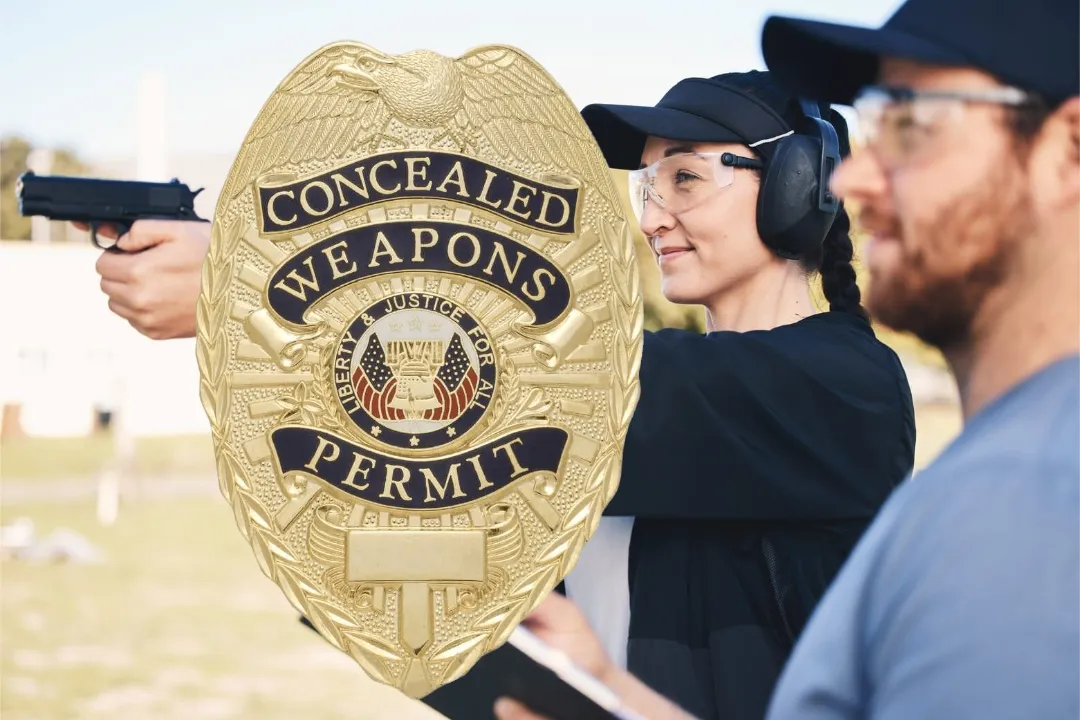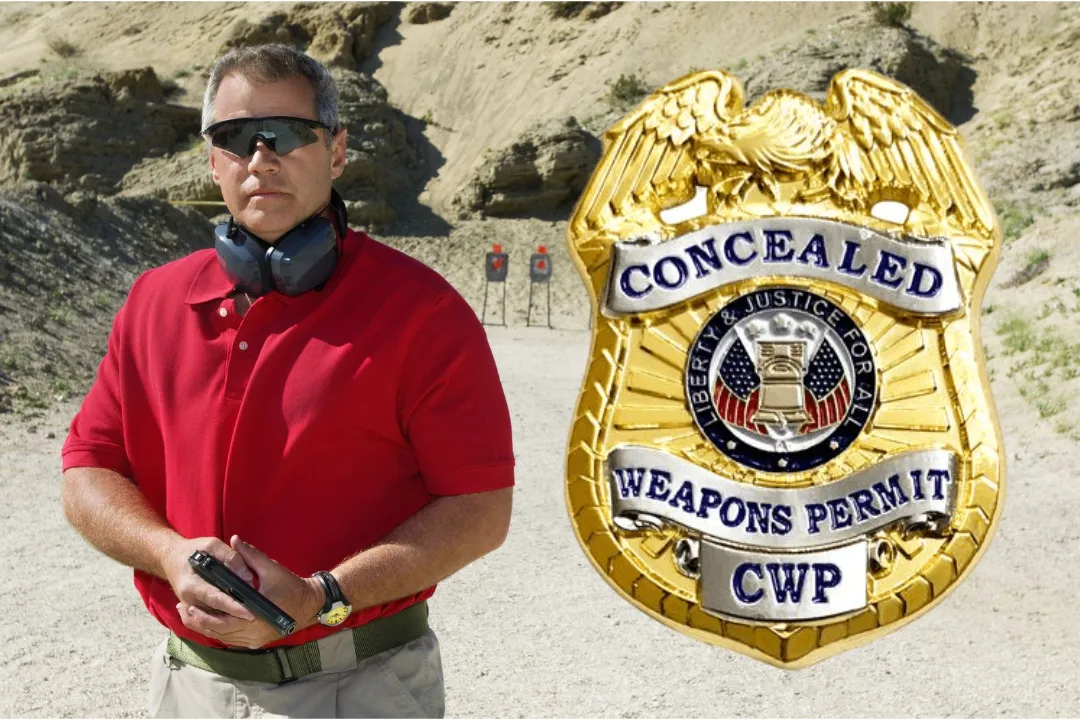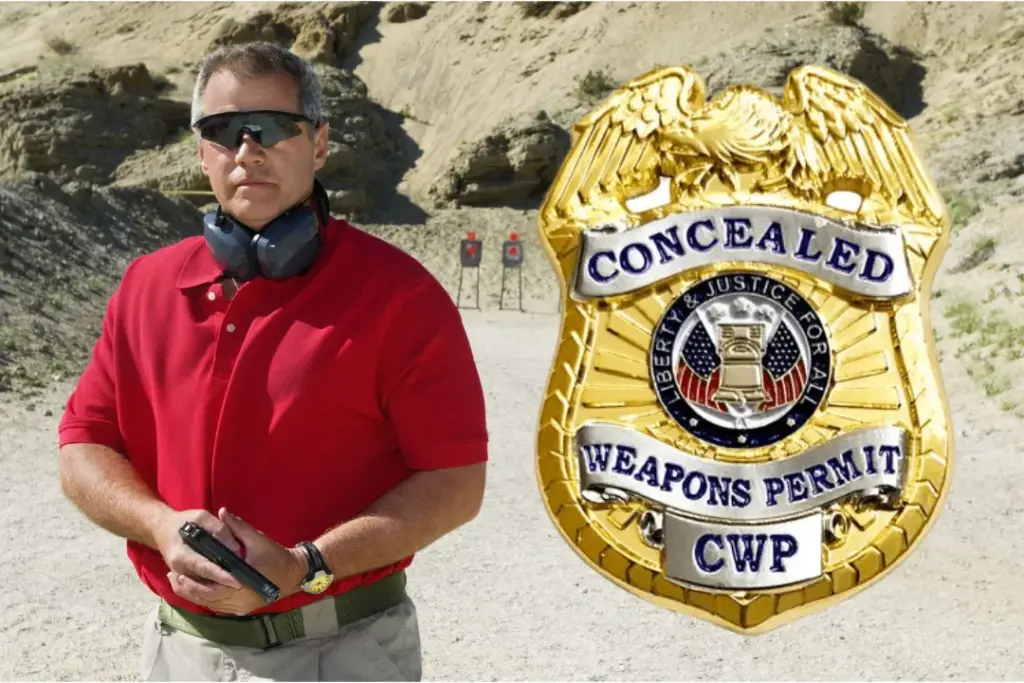Unveiling the Power of Concealed Weapons: The Importance of Earning a Concealed Weapons Badge

Concealed weapons are firearms or other weapons that are carried in a manner that is not easily visible to others. The purpose of carrying a concealed weapon is to have it readily available for self-defense without drawing attention to oneself. There are various types of concealed weapons that individuals may choose to carry, including handguns, knives, pepper spray, and tasers. Each type of weapon has its own advantages and disadvantages, and individuals should carefully consider their personal needs and preferences when choosing a concealed weapon.
Carrying a concealed weapon has both pros and cons. On one hand, it provides individuals with a means of self-defense in potentially dangerous situations. It can give them a sense of security and peace of mind knowing that they have the ability to protect themselves and their loved ones. On the other hand, carrying a concealed weapon requires responsibility and proper training. There is always the risk of accidents or misuse if individuals are not properly trained in handling and using their concealed weapon. Additionally, there may be legal implications and consequences if individuals use their concealed weapon inappropriately or unlawfully.
The Importance of Concealed Carry Training
Proper training is essential for anyone who chooses to carry a concealed weapon. Training provides individuals with the knowledge and skills necessary to safely handle and use their concealed weapon. It teaches them about the laws and regulations surrounding concealed carry, as well as the legal and ethical considerations involved in using a concealed weapon for self-defense.
There are various types of training available for individuals who wish to carry a concealed weapon. These include basic firearms safety courses, concealed carry courses, and advanced self-defense training. Basic firearms safety courses cover the fundamentals of firearm safety, including proper handling, storage, and maintenance. Concealed carry courses focus specifically on the laws and regulations surrounding concealed carry, as well as the practical aspects of carrying a concealed weapon. Advanced self-defense training goes beyond basic firearms safety and concealed carry, teaching individuals how to effectively defend themselves in real-life situations.
Proper training has numerous benefits for individuals who carry concealed weapons. It instills confidence and competence in handling and using their concealed weapon. It also ensures that they are aware of the legal and ethical considerations involved in using a concealed weapon for self-defense. Additionally, training helps individuals develop situational awareness and decision-making skills, which are crucial in potentially dangerous situations.
The Legalities of Concealed Weapons
Laws and regulations surrounding concealed weapons vary from state to state and even within different jurisdictions. It is important for individuals to familiarize themselves with the specific laws and regulations in their area before carrying a concealed weapon. Failure to comply with these laws can result in serious legal consequences.
Concealed carry reciprocity is an important consideration for individuals who frequently travel across state lines. Reciprocity refers to the recognition of a concealed carry permit issued by one state by another state. Some states have reciprocity agreements with other states, allowing individuals with a valid concealed carry permit from one state to legally carry their concealed weapon in another state. However, not all states have reciprocity agreements, so it is important for individuals to research and understand the laws of each state they plan to visit.
Penalties for violating concealed carry laws can vary depending on the severity of the offense and the jurisdiction in which it occurs. Common penalties include fines, probation, and even imprisonment. In some cases, individuals may also have their concealed carry permit revoked or suspended. It is crucial for individuals to understand and abide by the laws and regulations surrounding concealed carry to avoid these penalties.
Benefits of Earning a Concealed Weapons Badge
| State | Concealed Carry Permit Required? | Minimum Age for Permit | Training Required? | Prohibited Locations |
|---|---|---|---|---|
| Alabama | Yes | 18 | Yes | Government Buildings, Schools, Courthouses |
| Alaska | No | N/A | No | None |
| Arizona | No | N/A | No | None |
| Arkansas | Yes | 21 | Yes | Government Buildings, Schools, Courthouses |
| California | Yes | 21 | Yes | Government Buildings, Schools, Courthouses |
UP TO
80% off
Select Badge Style

A concealed weapons badge is a form of identification that indicates an individual’s legal authority to carry a concealed weapon. While not all states require individuals to obtain a concealed weapons badge, having one can provide several benefits.
Firstly, a concealed weapons badge can serve as proof that an individual has undergone the necessary training and background checks required to carry a concealed weapon. This can be useful in situations where individuals may need to demonstrate their legal authority to carry a concealed weapon, such as during interactions with law enforcement or when entering certain establishments.
Secondly, a concealed weapons badge can provide individuals with a sense of legitimacy and credibility. It shows that they have taken the necessary steps to ensure their own safety and the safety of others. This can be particularly important in situations where individuals may need to use their concealed weapon for self-defense, as it can help establish their intent and justification for using force.
To obtain a concealed weapons badge, individuals typically need to complete the necessary training and background checks required by their state or local jurisdiction. The specific requirements can vary, so it is important for individuals to research and understand the process in their area. Once obtained, individuals should carry their concealed weapons badge with them at all times when carrying a concealed weapon.
How to Obtain a Concealed Weapons Permit
Obtaining a concealed weapons permit is a necessary step for individuals who wish to legally carry a concealed weapon. The requirements for obtaining a permit can vary depending on the state or local jurisdiction, but there are some common elements that individuals should be aware of.
Firstly, individuals must meet certain eligibility requirements to obtain a concealed weapons permit. These requirements typically include being at least 21 years old (or 18 years old for military personnel), being a U.S. citizen or legal resident, and having no felony convictions or domestic violence restraining orders. Some states may also require individuals to complete a background check and fingerprinting.
The application process for a concealed weapons permit usually involves completing an application form, providing proof of eligibility, and paying a fee. In some cases, individuals may also need to provide character references or undergo an interview. Once the application is submitted, it is typically reviewed by the appropriate law enforcement agency, which may conduct additional background checks before issuing the permit.
Tips for a successful application include ensuring that all required documents are completed accurately and truthfully, providing any necessary supporting documentation, and following all instructions provided by the issuing authority. It is also important to submit the application well in advance of the desired start date for carrying a concealed weapon, as processing times can vary.
Concealed Weapons and Personal Protection

One of the primary reasons individuals choose to carry a concealed weapon is for personal protection. A concealed weapon can provide individuals with a means of defending themselves in potentially dangerous situations where their life or the lives of others are at risk.
There are various situations where carrying a concealed weapon for personal protection may be necessary. These include walking alone at night in high-crime areas, traveling to unfamiliar or dangerous locations, or encountering aggressive or threatening individuals. In these situations, having a concealed weapon can give individuals the confidence and ability to protect themselves and their loved ones.
When carrying a concealed weapon for personal protection, it is important to follow certain tips to ensure safety and effectiveness. Firstly, individuals should always be aware of their surroundings and maintain situational awareness. This includes being alert to potential threats and avoiding dangerous situations whenever possible. Secondly, individuals should practice proper firearm safety and handling techniques to minimize the risk of accidents or misuse. This includes keeping the weapon holstered or secured until it is needed and only using it as a last resort when all other options have been exhausted.
Concealed Weapons and Home Defense
In addition to personal protection, concealed weapons can also be used for home defense. Many individuals choose to keep a concealed weapon in their home as a means of protecting themselves and their family in the event of a break-in or other threat.
When using a concealed weapon for home defense, it is important to follow certain tips to ensure safety and effectiveness. Firstly, individuals should ensure that their concealed weapon is stored securely and out of reach of unauthorized individuals, such as children or visitors. This may involve using a locked safe or other secure storage device. Secondly, individuals should practice accessing their concealed weapon quickly and efficiently in the event of an emergency. This may involve practicing drills or scenarios to simulate real-life situations.
Legal considerations are also important when using a concealed weapon for home defense. Laws surrounding the use of force in self-defense can vary, so it is important for individuals to understand the specific laws in their area. In general, individuals are typically allowed to use reasonable force, including deadly force if necessary, to protect themselves or others from imminent harm. However, it is crucial to consult with legal professionals or law enforcement authorities to ensure compliance with local laws.
Concealed Weapons and Workplace Safety
Concealed weapons can also play a role in improving workplace safety. In some cases, employers may allow employees to carry concealed weapons as a means of self-defense in the event of an active shooter or other violent situation.
However, carrying a concealed weapon in the workplace can have legal implications and employers may have specific policies or guidelines regarding concealed carry. It is important for individuals to discuss their intentions to carry a concealed weapon with their employer and understand the specific policies in place. Some employers may require individuals to obtain a concealed weapons permit or undergo additional training before carrying a concealed weapon in the workplace.
When discussing concealed carry policies with employers, it is important to approach the conversation professionally and respectfully. Individuals should be prepared to provide information about their training and qualifications, as well as any relevant laws or regulations that support their request. It may also be helpful to provide examples of other workplaces that allow concealed carry and the positive impact it has had on employee safety.
Concealed Weapons and Active Shooter Situations
One of the most critical situations where concealed weapons can be used is in active shooter situations. An active shooter is an individual who is actively engaged in killing or attempting to kill people in a confined and populated area. In these situations, time is of the essence, and having a concealed weapon can potentially save lives.
When responding to an active shooter situation with a concealed weapon, it is important to follow certain tips to ensure safety and effectiveness. Firstly, individuals should prioritize their own safety and the safety of others. This may involve finding a safe location to hide or escape from the area if possible. Secondly, individuals should only engage the shooter as a last resort when there are no other options available. Engaging the shooter should be done with caution and with the intent to neutralize the threat and protect innocent lives.
Legal considerations are also important when using a concealed weapon in an active shooter situation. Laws surrounding the use of force can vary, so it is important for individuals to understand the specific laws in their area. In general, individuals are typically allowed to use reasonable force, including deadly force if necessary, to protect themselves or others from imminent harm. However, it is crucial to consult with legal professionals or law enforcement authorities to ensure compliance with local laws.
The Future of Concealed Carry Laws
Concealed carry laws have been a topic of debate and discussion for many years, and they continue to evolve and change. As society grapples with issues of gun violence and personal safety, there are several trends and potential changes that may impact individuals who carry concealed weapons.
One trend in concealed carry laws is the expansion of concealed carry rights. Many states have passed laws that make it easier for individuals to obtain a concealed weapons permit or carry a concealed weapon without a permit. These laws are often based on the belief that individuals have a fundamental right to self-defense and should be able to exercise that right without unnecessary restrictions.
Another trend is the implementation of “constitutional carry” laws. These laws allow individuals to carry a concealed weapon without a permit, based on the belief that the Second Amendment of the U.S. Constitution guarantees the right to bear arms. Several states have already implemented constitutional carry laws, and more may follow suit in the future.
There are also potential changes to concealed carry laws at the federal level. Some lawmakers have proposed legislation that would establish national reciprocity for concealed carry permits, allowing individuals with a valid permit from one state to legally carry their concealed weapon in any other state. This would simplify the process for individuals who frequently travel across state lines and ensure consistency in concealed carry laws nationwide.
The future of concealed carry laws is uncertain, but it is clear that they will continue to be a topic of debate and discussion. Individuals who carry concealed weapons should stay informed about changes in their local laws and be prepared to adapt as necessary.
In conclusion, concealed weapons play an important role in personal protection, home defense, workplace safety, and active shooter situations. They provide individuals with a means of self-defense and can potentially save lives in dangerous situations. However, carrying a concealed weapon requires responsibility and proper training. Individuals should familiarize themselves with the laws and regulations surrounding concealed carry in their area and obtain the necessary permits or badges. They should also seek out proper training to ensure they are competent and confident in handling and using their concealed weapon. By understanding the basics of concealed weapons, the importance of training, the legalities surrounding concealed carry, and the various applications of concealed weapons, individuals can make informed decisions about their own personal safety and the safety of others.
If you’re looking for a concealed weapons badge, you might also be interested in checking out Owl Badges’ article on stylish transportation security badges. These badges not only serve as identification for transportation security personnel but also add a touch of style to their uniforms. To learn more about these badges and how to get your hands on one, click here.
FAQs
What is a concealed weapons badge?
A concealed weapons badge is a permit that allows an individual to carry a concealed weapon in public places.
Who issues concealed weapons badges?
Concealed weapons badges are issued by state or local law enforcement agencies.
What are the requirements for obtaining a concealed weapons badge?
The requirements for obtaining a concealed weapons badge vary by state, but generally include completing a firearms safety course, passing a background check, and paying a fee.
What types of weapons can be carried with a concealed weapons badge?
The types of weapons that can be carried with a concealed weapons badge vary by state, but generally include handguns and other small firearms.
Where can a person carry a concealed weapon with a concealed weapons badge?
The places where a person can carry a concealed weapon with a concealed weapons badge vary by state, but generally include public places such as parks, restaurants, and stores.
What are the benefits of having a concealed weapons badge?
The benefits of having a concealed weapons badge include the ability to protect oneself and others in dangerous situations, and the peace of mind that comes with knowing that one is prepared for any potential threats.